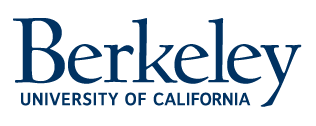Broadening Faculty Reward Systems to Support Societally-Impactful Research
A landscape scan of promising steps taken by universities
December 2023
Academic reward systems often evaluate a faculty member’s scholarly impact primarily using citation counts and publication metrics, and fail to sufficiently recognize their contributions that impact society, for example through policy outcomes, community development, and technological innovation. There is increasing awareness of the need to adjust the incentive system to better reward societally-impactful research, and that doing so may help universities retain talented faculty, deepen public trust, and increase the impact of their research on issues of global and local significance.
Participants in the Transforming Evidence Funders Network (TEFN), facilitated by The Pew Charitable Trusts, recently commissioned a landscape scan of promising reforms to faculty reward systems. This scan draws upon and analyzes insights from 13 universities and 10 organizations in the United States to illustrate the extent and variety of initiatives underway to enhance recognition of societally-impactful scholarship. It also highlights opportunities for funders to accelerate and sustain these efforts.
You can download a copy of the landscape scan report here.
Webinar speakers Emily Ozer and Jennifer Renick, two co-authors of the report, described some of the promising approaches revealed by the scan, lessons learned from their own efforts to promote and achieve institutional changes, and some of the many opportunities to accelerate this work.
Key Takeaway Messages
Faculty often identify their research as “societally impactful” when inclusive definitions are used.
Read the key takeaway messages from all of our webinars here.
Watch the full webinar recording
Watch key excerpts from the webinar
Webinar Speakers
Dr. Emily Ozer
University of California Berkeley
Emily J. Ozer is a psychologist and Professor of Community Health Sciences at the UC Berkeley School of Public Health and the UC-Berkeley Faculty Liaison to the EVCP (Executive VC/Provost) on Public Scholarship and Engagement. Her research focuses on promoting the healthy development and empowerment of adolescents, bridging participatory research approaches and prevention science in school-based interventions.
Dr. Jennifer Renick
University of Memphis
Jennifer Renick is an Assistant Professor in the Department of Counseling, Educational Psychology & Research at the University of Memphis. Her community-engaged research focuses on the intersection of community, developmental, and educational psychology, specifically on how to improve school climate and connection for historically underserved adolescents.



